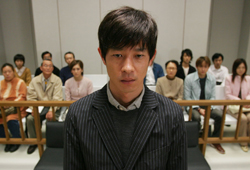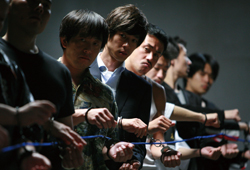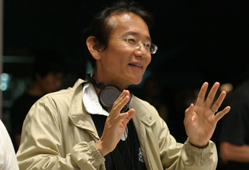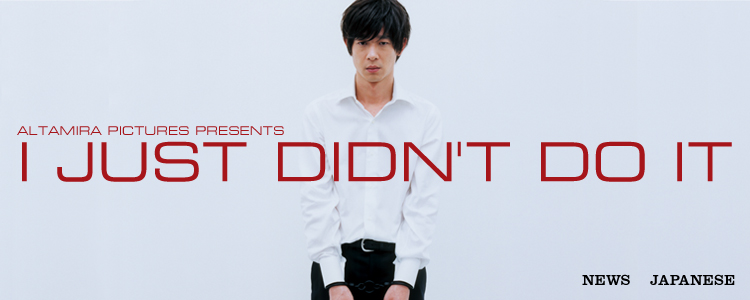
It's not enough to plead ignorance. Tomorrow it might be you on trial.
Masayuki SUO, writer-director of the world- renowned "Shall We Dance?" makes his return to feature film-making after an 11 year absence.
In "Fancy Dance"(1989) he examined the little-known world of apprentice Buddhist monks. In "Sumo Do, Sumo Don't"(1992) he explored the intricacies of university sumo wrestling. In "Shall We Dance?" he gave the same treatment to the twilight world of Japanese ballroom dance.
This time he brings his powerful yet entertaining analysis to bear on the closed world of Japan's legal system. This story of one man, falsely accused of the crime of molestation, examines the problems of an authoritarian judicial system where an individual faces the full, unchecked weight of state power.
"If you're innocent, surely there's no way they can find you guilty?"
Teppei KANEKO is a young guy, typical of many of his generation; he works part-time, hangs out in Tokyo and tries to figure out what life has in store for him.
He finds out the hard way. Finally getting his act together, he's on his way to his first job interview when he's accused of groping a young schoolgirl on the train.
He desperately pleads his innocence but the police are only interested in coercing a quick confession and closing the books. Before he knows what's going on his denials plunge him into a Kafka-esque world of bureaucratie precedent.
Being held in custody is a frustrating, brutalizing and lonely experience for Teppei. The prosecutor ignores his explanations of innocence and he's summarily arraigned for trail. In Japan judges are promoted for the speed with which they deal with their caseloads with a resulting 99.9% guilty rate. Belying its adoption of most aspects of modern democracy, Japan does not have trail by jury and presumption of guilt is reality in all but name.
Driven by the purity of his belief that innocence will save him, Teppei secures the services of veteran defense counsel, Mr. Arakawa (Koji YAKUSHO) and greenhorn assistant defense attorney, Ms. Sudo (Aska SETO). Sudo does'nt have the slightest desire to defend a groper but when Arakawa tells her that false accusations of molestation go to the very heart of the problems with Japan's legal system, she begrudgingly complies.
Meanwhile Teppei's mother (Masako MOTAI) and slacker best friend, Tatsu (Koji YAMAMOTO), form an unlikely alliance to organize on his behalf.
As his circle of friends and supporters gathers round, so too the noose of "justice" tightens and the power of the state moves against one young man who is about to have to grow up very fast.
 |
|
 |
 |
 |
 |

"Normally the ideas for my films come to me as wonderful discoveries about life; things that take me by surprise, that delight and inspire.
This time, what I discovered was a sense of outrage within myself.
A regular guy going about his normal life gets caught up in a one-sided fight with the full weight of the law. The more I discovered the reality of was happening around me, the more my anger grew.
What resulted is not so much a movie I wanted to make as a movie I simply HAD to make."
Masayuki SUO
Written & Directed by Masayuki SUO
Ryo KASE "LETTERS FROM IWO JIMA"
Asaka SETO "ONE MISSED CALL 2"
Koji YAKUSHO THE ORIGINAL "SHALL WE DANCE" / "MEMOIRS OF A GEISHA" / "BABEL"
Executive Producer:Chihiro KAMEYAMA, Shoji MASUI Producer:Daisuke SEKIGUCHI, Yoshino SASAKI, Shintaro HORIKAWA
Director of Photography:Naoki KAYANO J.S.C. Lighting:Tatsuya OSADA Production Designer:Kyoko HEYA
Sound Mixer:Shigeru ABE Post Sound Mix:Hiromichi KORI, Yasushi YONEYAMA Music:Yoshikazu SUO
Produced by Fuji Television Network, Inc. / Altamira Pictures, Inc. / Toho Co., Ltd.
To contact the filmmakers : kennedy/altamira.jp
